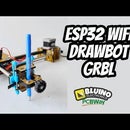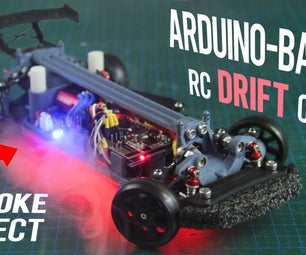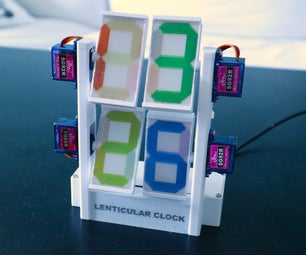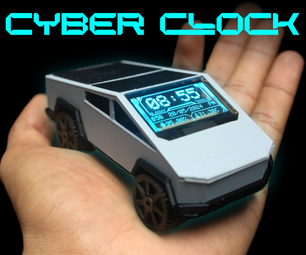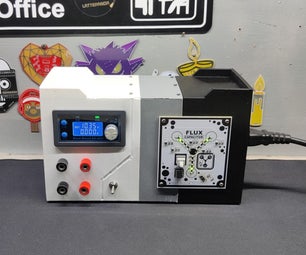Introduction: Digital Clock LED Dot Matrix - ESP Matrix Android App
This article is proudly sponsored by PCBWAY.
PCBWAY make high quality prototyping PCBs for people all over the world. Try it for your self and get 10 PCBs for just $5 at PCBWAY with very great quality, Thanks PCBWAY. The ESP Matrix Board that I developed for use in this project uses PCBWAY PCB services. By following this instructable you can make a Digital Clock LED Dot Matrix at a relatively cheap cost and don't require coding skills, just follow it step by step from start to finish.
Step 1: Hardware Reqiered
Here are the components that you will need to make this project:
- 1 x PCB ESP Matrix Board (PCBWAY)
- 1 x LED Dot Matrix MAX7219 4in1 Module
- 1 x NodeMCU Amica ESP8266
- 1 x USB to TTL CP2012 Module
- 1 x RTC DS3231 Module
- 1 x Active Buzzer 5V
- 1 x Tact Switch 22mm
- 1 x 5 pin Male Header 90 degree
- 2 x 5 pin Male Header
- 2 x 15 pin Female Header
- 1 x 4 pin Female Header
- USB OTG Adapter
- Micro USB Cable
- Case 3D Printing Part
Acrylic transparent 3mm
Step 2: Order PCB on PCBWAY
To make this project you need to order a prototype PCB on PCBWAY. How to order is very easy and you will get 10 Pcs PCB for $5 with very great PCB quality.
Step to Order:
1. SignUp/Log in on pcbway.com
2. Open this PCB project link.
3. Click Add to cart.
4. Wait moment for PCB review, then Click Check Out.
Step 3: Place the Components
Install all components on the PCB following the pictures and symbols on the PCB, for details you can follow step by step in the following video.
Then solder all components on the PCB, for details you can follow step by step in the following video.
Step 4: Solder USB TTL Pin Header
Insert Male Pin Header 90 degree to USB TTL module, before soldering cut the header legs so that it becomes flat with the PCB.
Step 5: Attach USB to TTL Module
Attach USB to TTL Module on the PCB following the pictures, solder it then cut the legs of pin header.
Step 6: Set Up LED Dot Matrix Module
Remove the first and third order of LED Dot Matrix, then attach the two header pins as shown in the picture, then solder them. Last step reinstall the LED Dot Matrix.
Step 7: Assembly ESP Matrix Board
Attach ESP Matrix Board into LED Dot Matrix which already has the two pin header, then solder it.
Step 8: Attach DS3231 and Nodemcu
After you finish soldering all of component, next you can attach the RTC DS3231 and NodeMCU ESP8266 board, please attention when attach do not let it be reversed referring to the symbol on the PCB.
Step 9: 3D Printed Case
Download 3D STL file here:
Step 10: Attach Foam Pad
Use foam included from the purchase of Nodemcu modules, cut it in half then place it as shown in the picture.
Step 11: Install ESP Matrix PCB Assembly
This 3d printed case is design more slim and pressing to make it look solid and robust, so to install it is not so easy need a little pressed.
Step 12: Attach Tranparent Acrylic
To make the light of the LEDs be more clear and diffused, on the LED surface add black transparent colored acrylic.
Step 13: Ready..
Now your ESP Matrix Device is ready to program with ESP matrix firmware.
Step 14: Upload Firmware
1) To program the Nodemcu ESP8266 (ESP Matrix device) very simple, you only need to connect Nodemcu (ESP Matrix device) to an Android phone via a micro usb cable and OTG adapter, see picture. NB: Micro USB socket on back only for power use (not line to programming Nodemcu)
2) Then install the ESP Matrix Offline app from Google Playstore.


